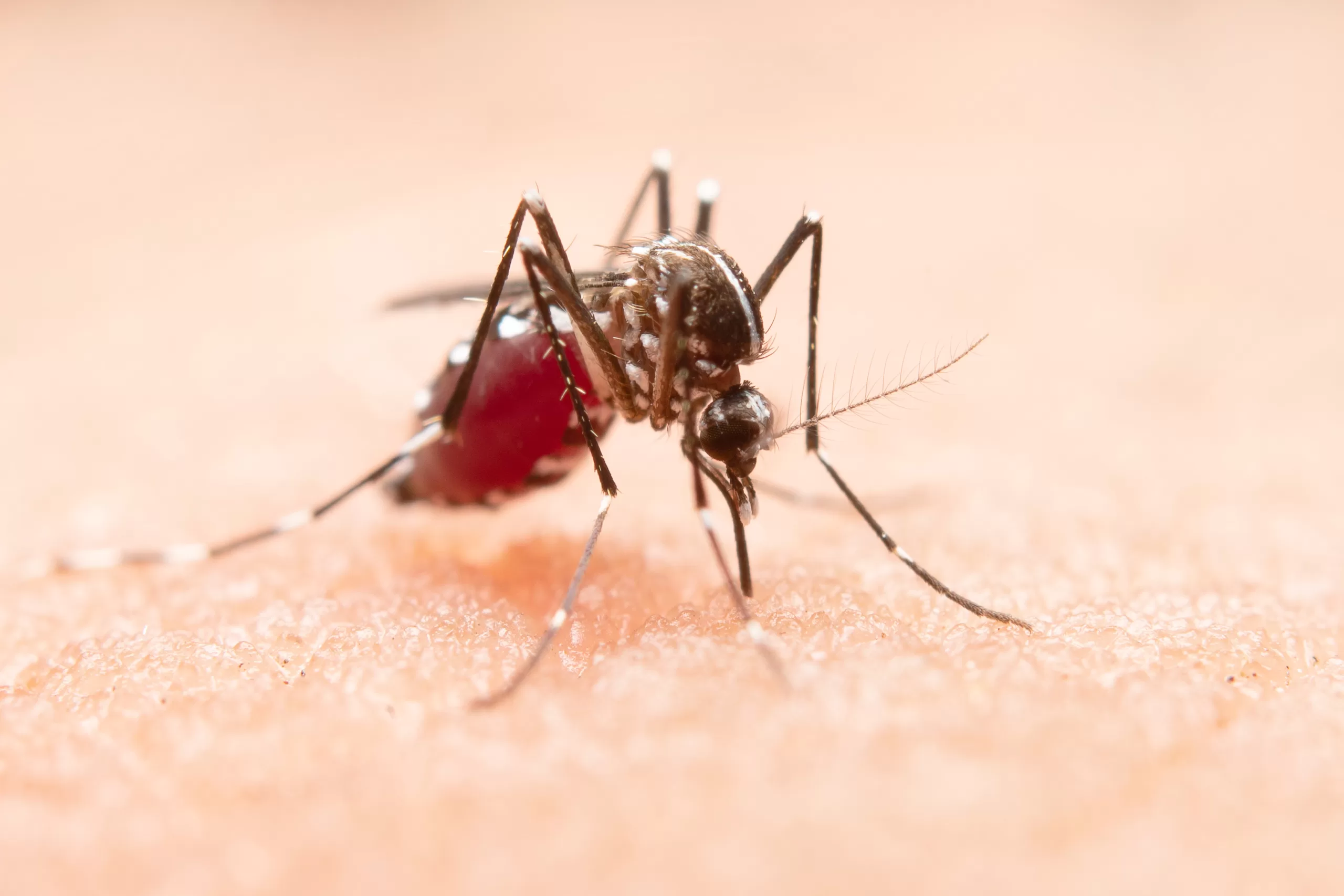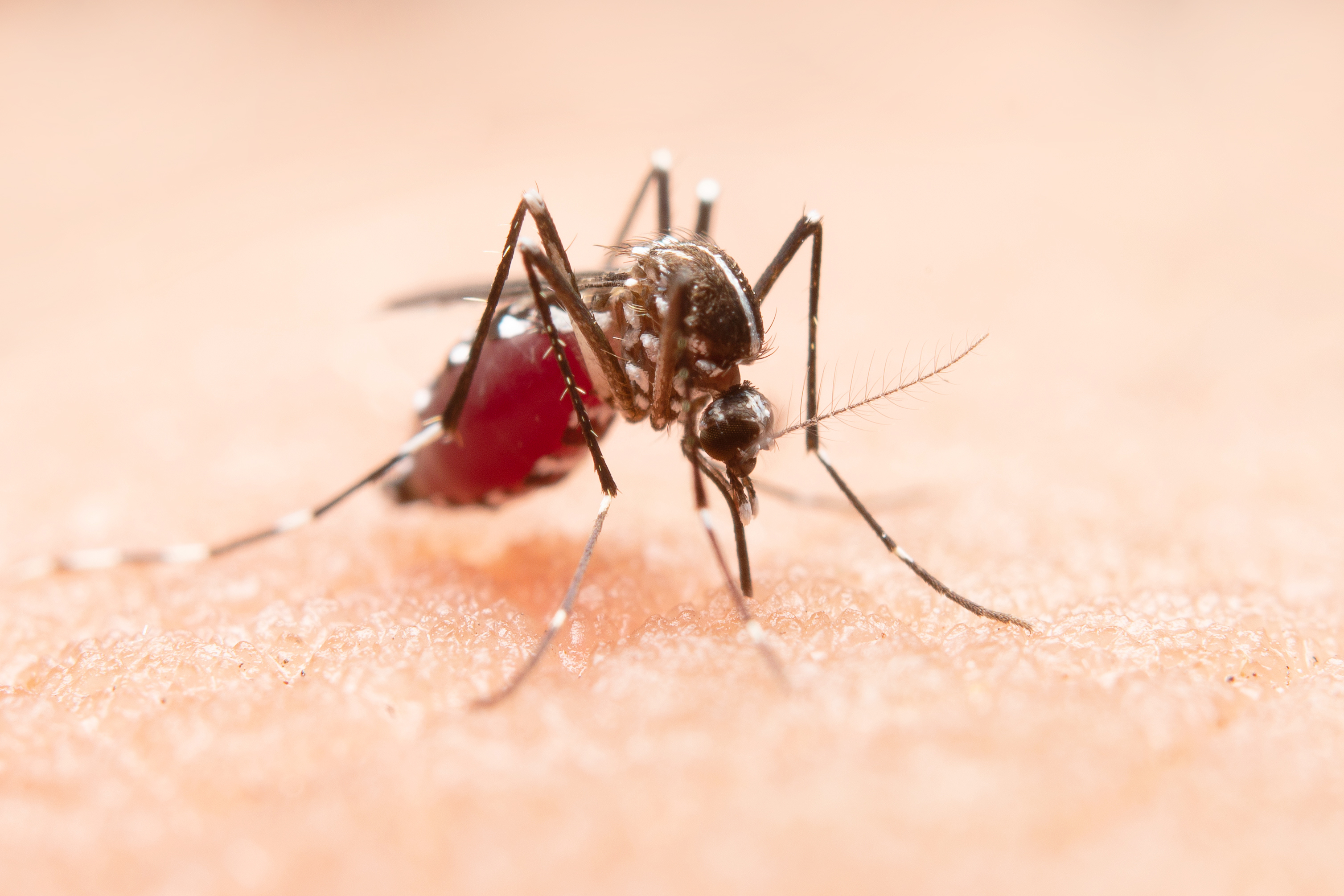Dengue fever – an infection spread by mosquitoes that can be lethal – has been linked to spontaneous erections that could last hours.
Dengue is usually found in tropical areas, like parts of Africa and Asia, the Caribbean and Central and South America.
But “breakbone fever”, as it’s sometimes referred to, has more recently been spotted in in France, Italy and Cyprus, prompting the UK Health Security Agency to install mega mosquito traps in ports, service stations and truck stops in places like London and Kent.
Doctors in Burkina Faso, West African, recently floated the idea that dengue could cause prolonged spontaneous erections, on top of top of fever, headaches and stomach pains.
They presented their theory in a study published in Urology Reports, which detailed the case of a 17-year-old boy treated in the emergency department for a severe dengue infection.
The teen had been hospitalised for five days for acute ischemia — where blood flow to part of the body is interrupted — and kidney problems due to his infection.
He also seemed to suffering from a peculiar side effect.
“For about 18 hours, he had a soft, non-painful and persistent erection that occurred spontaneously without any sexual stimulation,” the doctors noted.
There was also no evidence of “trauma” to his member or a “triggering factor”, they added.
Doctors reckoned the 17-year-old was suffering from arterial priapism as a result of dengue.
Priapism is a long-lasting and often painful erection that persists despite the lack of sexual stimulation.
“It can cause permanent damage to your penis if not treated quickly,” according to the NHS.
The Burkina Faso doctors believed the teen’s erection may have been cause by the dengue virus infection blood vessels in his penis, which caused plasma fluid to leak into the shaft and made it appear larger and firmer.
“Dengue, by causing vascular leaks, could be a rare trigger for arterial priapism,” they explained.
Thankfully, doctors were able to treat the boy with an ice-pack and everything was back to normal within 48 hours.
“The patient was seen again at 3 months and then at 6 months and did not express any complaints,” they wrote, adding that he was able to achieve normal erections following his strange complaint.
Dr Richard Murphy, who advised Doctors Without Borders in Africa for seven years, told DailyMail.com that it could be possible for dengue to cause spontaneous erections.
He noted that viruses such as Covid, mumps and rabies have been linked to priapism in the past.
“So, it is possible that other viruses are associated with it.”
But he noted that the young man’s reaction to the infection was probably extremely rare.
Experts last month raised concerns over an “unprecedented” surge of dengue fever cases seen in the past 20 years, meaning it is now considered a “substantial” health threat
What symptoms does dengue normally cause?
According to the World Health Organization (WHO), people who get dengue from a mosquito bite will usually only experience mild symptoms or none at all.
They’ll usually feel better after a week or two.
But in rare cases, dengue can be severe and even lead to death.
Symptoms will typically start four to 10 days after you’re infected and last up to a week.
They can include:
- High fever (40°C/104°F)
- Severe headache
- Pain behind the eyes
- Muscle and joint pains
- Nausea
- vomiting
- Swollen glands
- Rash
Symptoms can develop into severe dengue even after the fever has gone away.
Keep an eye out for:
- Severe abdominal pain
- Persistent vomiting
- Rapid breathing
- Bleeding gums or nose
- Fatigue
- Restlessness
- Blood in your vomit or stool
- Being very thirsty
- Pale and cold skin
- Feeling weak
You should call 999 or go to A&E if you have symptoms of severe dengue after travelling to a country that has it.
How to protect yourself against dengue
THOUGH dengue is more common in tropical regions, it has been spotted in places closer to the UK.
According to the NHS, they include:
- Croatia
- France
- Italy
- Spain
- Portugal and Madeira
There isn’t a vaccine available in the UK that you can have to prevent dengue before travelling to a country where there’s a risk of infection.
But there are certain measures you can take to avoid bitten by mosquitoes with dengue.
- Wear long-sleeved clothing and trousers to cover your arms and legs, particularly during early morning and early evening
- Use insect repellent on your skin (ideally one that contains the ingredient DEET)
- Close windows and doors whenever possible, or use blinds or screens
- Sleep under a mosquito net treated with insecticide, including during the day

